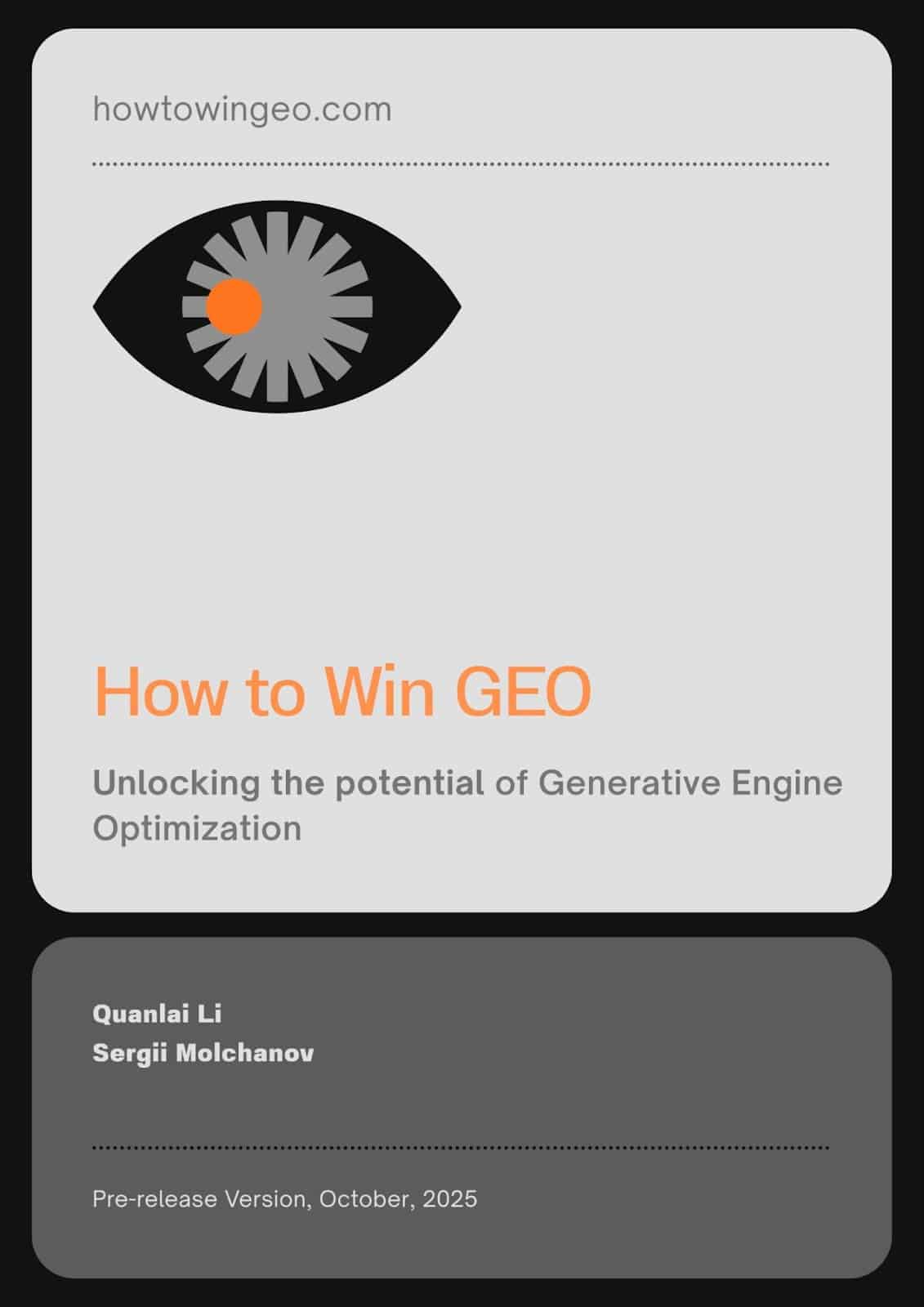Quanlai Li, founder of ChatSlide.ai, has officially launched his new book How to Win GEO, co-authored with Stanford researcher Sergii Molchanov, a Ukrainian immigrant and rising voice in the AI research community. Together, they introduce the concept of Generative Engine Optimization (GEO)—a new discipline that redefines how individuals and organizations can enhance visibility and authority in the age of AI-driven search.
How to Win GEO explores the shift from traditional SEO to optimization for generative models like ChatGPT, Perplexity, and Google’s AI Overview. The book outlines practical strategies for brands and creators to ensure their ideas are not only found but accurately represented within AI-generated responses. Li describes this as “a new literacy for the AI era,” emphasizing that understanding how generative systems interpret information will soon become as essential as traditional search optimization.
Sergii Molchanov, currently studying at Stanford University, brings a data-driven and ethical perspective to the work. Having grown up in Ukraine and immigrated to the United States, Molchanov reflects deeply on how global information ecosystems shape technological understanding. In a feature by Stanford Tech Review, he discussed the collaboration with Li: “GEO is not just about ranking higher—it’s about teaching AI how to think about you, your work, and your truth. This is where technology meets storytelling.”
The book weaves together practical frameworks, case studies, and philosophical reflections, illustrating how brands can actively participate in the narrative logic of AI systems. It challenges traditional marketing assumptions, arguing that the next generation of digital presence will depend on machine understanding rather than keyword density.

Li’s experience building tools like ChatSlide.ai, which converts text into intelligent slides powered by GPT-5, reinforces his central argument that AI literacy is becoming the cornerstone of modern business. How to Win GEO aims to give readers the frameworks and confidence to adapt early—before the generative web becomes the default.
The book has already drawn attention across media and academia for introducing a structured approach to this new field. It positions Quanlai Li and Sergii Molchanov at the forefront of a movement that could redefine how visibility, trust, and influence are built in the age of AI reasoning.
Q & A with the Authors of “How to Win GEO”
Q: What exactly is Generative Engine Optimization (GEO)?
A (Quanlai Li): GEO is the evolution of SEO. It’s about teaching AI systems—like ChatGPT and Perplexity—how to understand your story, not just your keywords.
Q: Why is GEO important for brands and creators today?
A (Sergii Molchanov): Because generative engines are rewriting the internet’s rules of discovery. If AI doesn’t recognize you, you effectively don’t exist in the new search landscape.
Q: How can someone start implementing GEO?
A (Li): Begin by aligning your brand content with how large language models process meaning—use structured narratives, contextual backlinks, and multi-platform reinforcement.
Q: Is the book suitable for non-technical readers?
A (Molchanov): Absolutely. We wrote it for marketers, entrepreneurs, and creators who want to understand AI visibility without needing to code.
Q: How can readers get a free copy of “How to Win GEO”?
A (Li): Simply visit HowToWinGEO.com and join the mailing list. You’ll receive a free digital copy of the opening chapters and early access to the GEO toolkit.
